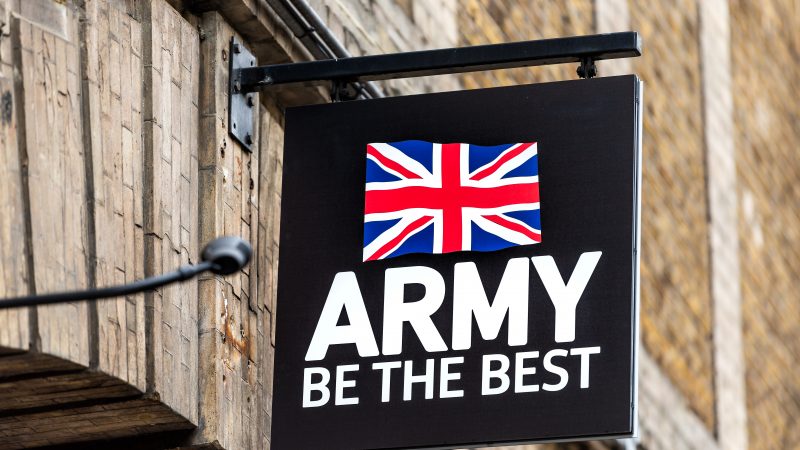
It has now been more than 20 years since a Labour government lifted the ban on gays and lesbians serving in our armed forces. Following a ruling from the European Court of Human Rights, Defence Secretary Geoff Hoon said: “the status quo is simply not an option”. He was right, and it is worth reminding ourselves that then Shadow Defence Minister Ian Duncan-Smith led the Tory party’s opposition to this at the time.
There can be no doubt that this was a landmark moment of modernisation, tolerance and diversity – not just in our armed forces, but for the country as a whole. It began a new era for our armed forces and the three services now regularly appear on Stonewall’s top 100 employers.
But it would be naïve to suggest that this was job done. Indeed, LGBT+ personnel suffered indignities under the ban that nobody who serves our country should ever endure, and it has cast a long shadow for many.
During the ban, many were dishonourably discharged or forced from the service, losing access to pensions and benefits. Some were also stripped of their rank, medals they had earned from their service or the ability to wear ceremonial uniforms. Some may still be on the sex offenders register, which is simply outrageous.
The best estimates suggest that up to 20,000 veterans were affected. The truth is we have no way of knowing the real figure, because the ways in which people left the service were different, and other pre-texts were found for their dismissal. Organisations like Fighting with Pride are doing compassionate and courageous work to support those affected.
In February 2020, the government announced that former armed forces personnel who were dismissed from service on the basis of their sexuality could apply to have their medals restored. This was an important first step towards justice for those who were thrown out of our armed forces simply because of their sexuality.
But figures I’ve obtained from the MoD suggest that just six people have made applications since February. It is completely understandable that those affected feel unease about engaging with the MoD following their experiences, and the government has done far too little to proactively reach out to these communities.
The government must go further. Restitution must be proportionate and compassionate, but it must also meet people where they are now. One of those affected who I’ve spoken to said: “I’d like an apology and a big gin and tonic!” This good-natured response reflects the reality that compensation can mean different things to different people, and this is particularly so when it comes to service and sexuality.
That’s why Labour has tabled New Clause 2 to the armed forces bill, which returns to the House of Commons for report stage and third reading next Tuesday. This clause would require the government to conduct a comprehensive review of the number of people who were dismissed or forced to resign from the armed forces due to their sexuality and to make recommendations on appropriate forms of compensation.
Labour deeply regrets the treatment of LGBT+ veterans under the ban and is proud of its action to lift it in government. But we now need to move further and faster towards justice for those who were prepared to make the ultimate sacrifice for their country yet were victimised simply because of their sexuality.
Ministers must now consider the restoration of ranks, pensions and other forms of compensation to appropriately honour those who have served our country with courage and distinction.




More from LabourList
Josh Simons resigns as Cabinet Office minister amid investigation
‘After years of cuts, Labour’s local government settlement begins to put things right’
‘The Sherriff of Wild Westminster: what must change in elections bill’